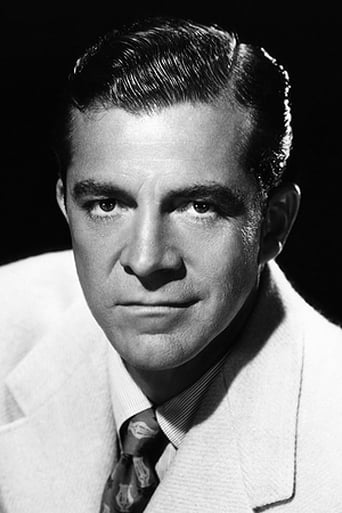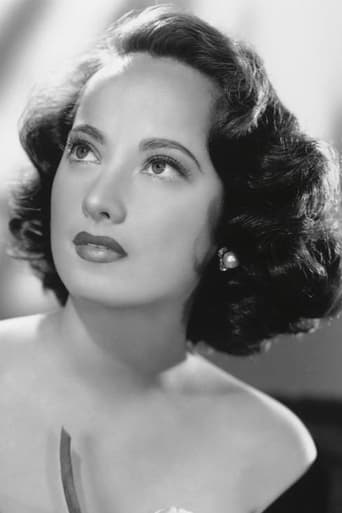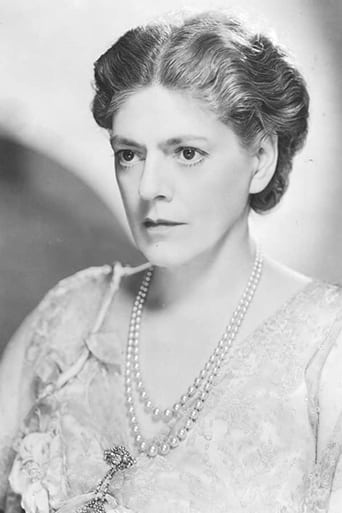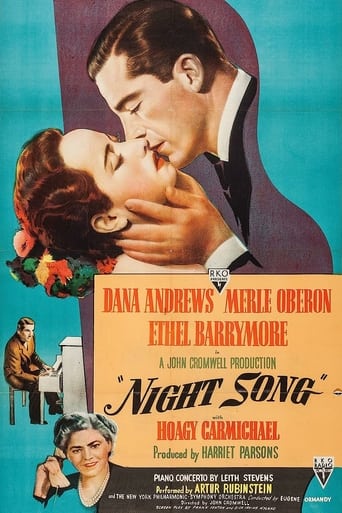
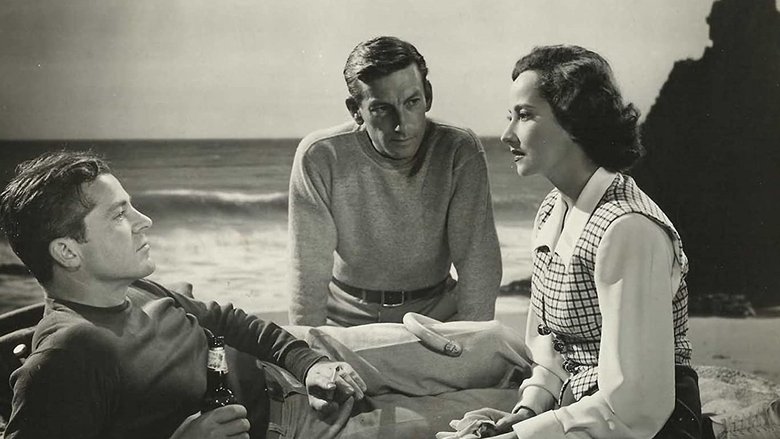
Night Song (1948)
A socialite pretends to be poor and blind in her plan to help a blinded pianist.
Watch Trailer
Cast
Reviews
Am i the only one who thinks........Average?
It is not deep, but it is fun to watch. It does have a bit more of an edge to it than other similar films.
Like the great film, it's made with a great deal of visible affection both in front of and behind the camera.
It is an exhilarating, distressing, funny and profound film, with one of the more memorable film scores in years,
I gather from Paramount's Press Book that the purpose of this movie was to introduce a new piano concerto by Leith Stevens. Alas, if Paramount Publicity is to be believed, that aim fails dismally. Despite being rendered here by Arthur Rubenstein and the New York Philharmonic Orchestra conducted by Eugene Normandy, the concerto is as dull as the surrounding story is silly. True, our star, Merle Oberon, is beautifully photographed and gorgeously gowned. Also true that director John Cromwell and actors Hoagy Carmichael and Ethel Barrymore try their best to work up an audience's interest in the proceedings. The problem is that the script is so absurd, it would have made a really great spoof if only the actors and the director had decided NOT to play it straight! (I gave this movie 2/10 in my original review, but maybe that's being too hard even though it does force audiences to sit still for 102 minutes.)
The job of a movie is to give the audience members a bigger slice of life than they would normally experience. Night Song, a classic movie of the post-war 1940's, gives that slice of life with rare grace, elegance and style. Critics have panned it because of the "bad" far-fetched plot, the "bad" music, and "bad" acting.I like this movie because, quite coincidentally, I personally have digested many of the slices of life in the "far-fetched" plot. The movie is about a piano player/composer who is struck on the head in the prime of his life. I am a piano player/composer who was struck on the head in the prime of my life. We both made it through a war era untouched, he WWII, and I Vietnam, well almost. He is living hand to mouth with his best friend. I am also living hand to mouth with my best friend, my wife. For those who love far-fetched coincidences: The composer's last name is Evans—my grandfather's name before he changed it. The movie was probably shot in 1946, the year I was born. Exactly 20 years later I saw Artur Rubenstein, who acted and performed in this movie, in a concert at the Music Center in Los Angeles--the only time I ever went to such a concert. It opened in Sweden on my birthday. What could be more far-fetched?. The not so far-fetched plot twists were not lost on me. As I watched, I was saying to myself, "What is possible for me? Miracles happen every day! Every success story was improbable before it happened!" After watching the film, I went over to the piano and played my own unfinished concerto once again! As for the Leith Stevens music, if you didn't like it, say so. If it didn't touch you, say so. I liked it, immensely. It touched me immensely! If you want a thrill, type in Leith Stevens on IMDb. You'll find page after page of musical credits—right up to 2005! The man is a modern master composer played by the greatest performers of that time in this movie! Not bad for "bad" music! The job of film critics is to say what they like and dislike about films and why. They should leave all categorical good and bad thoughts completely out of the conversation.One measure of the talent of an actor, and some say the only measure of a film, is the ability to transport the mind and the spirit of the viewer to another time and place. I was completely transported by this movie. I was perfectly comfortable with ALL the performances, by some of the most distinguished actors of the era, because I was ready, willing and able to be transfixed; and this film is transfixing! Let's get it on DVD!
They used to show it on Turner Classic Movies on Ethel Barrymore's birthday (when they would show all of her movies). It contains a wonderful original mini-concerto by film composer, Leith Stevens, written just for this film. I think this movie is wonderful, in part, because it really exemplifies the best sort of films that glamorize classical music and not only give the film-goer a glimpse into the life and excitement of being a musician, but a peak into the collaborative creative process, itself. Many of these films were made in the '30s, '40s and '50s. They are rarely made now; usually films about musicians, especially about classical musicians, alienate the audience from the artists rather than inspiring empathy and a desire to emulate the stars on screen. Also, such clever and moving plots in love stories are fairly rare now. Ironically, it has wonderful scenes where Hoagy Carmichael takes dictation for the blind composer but in real life, Hoagy Carmichael, one of the great jazz musicians of the 20th Century, could not read music. I wonder if the plot was inspired at all by the fate of the '20s Jazz Great, Bix Beiderbeck, who drank himself to death at a young age because he found it increasingly hard to get work in the Paul Whiteman-inspired era of big bands who played from written parts. It also has some wonderful quotable one-liners and great, even profound dialogue, I wish it were available. That a film with such a star-studded line-up should be completely out of print is astounding: Dana Andrews, Merle Oberon, Hoagy Carmichael, Ethel Barrymore, the great pianist, Arthur Rubenstein (who even has a couple of lines), the great Conductor, Eugene Ormandy, and the New York Philharmonic, as it was at its peak at the end of the '40s. There is a lot that is original in this film. For example, The scene in which Dana Andrews gives Merle Oberon a piano lesson is an amazing look at what brilliant interpretation based on musical maturity and advanced education can accomplish. Merle Oberon plays Chopin perfectly but mechanically, and then Dana Andrews plays it perfectly but brings it to life. We hear it from the kitchen along with Carmichael and Barrymore. She tells him archly that she doubts there is much he could teach her, as we hear it the first time together with them, and the second time, he tells her, matching her archness, exactly, "looks like she is improving already." One can neither rent nor buy Night Song. I wonder if it was issued on VHS. I just saw that a 16 mm copy went at auction for several hundred dollars on E-Bay. Pity.
This was a very outstanding film for viewers who loved Merle Oberon, Dana Andrews, Ethel Barrymore and Hoagy Carmichael during the height of their careers in 1948. In this film, Cathy,(Merle Oberon),"The Broken Melody",'34, a rich woman who falls deeply in love with Dana Andrews,(Dan),"The Best Years of Our Lives",'46, who is blind and is a down and out piano player and composer. Dan has a great pal who is also a musician and they work and live together in a Jazz club and try to make ends meet. Dan's buddy is Hoagy Carmichael,(Chick),"To Have & Have Not",'44 who gives a great supporting role and is quite funny through out the entire picture. There is plenty of Classical music and a great appearance of a famous conductor and pianist. The is lots of romance, drama and comedy and a very unusual ending.
